As a Minister
Home / As a Minister
MoS - Ministry of Sports & Youth Affairs
In 2003, when I took the charge of the Youth Affairs and Sports Ministry, I encouraged young individuals to pick sports as a career. For the first time, a Prime Minister National Sports Fund was set up to encourage people to take up sports as a career.
I instructed senior officials to redraw a list of priority sports disciplines on the basis of our achievements in international competitions and the popularity of games. Besides, I requested the private sector to come forward with sponsorship deals to ensure a win-win situation for both the sponsors and sportsmen.
Consequently, investments in sports from private firms increased and the sports budget tripled. Synthetic tracks, world-class swimming pools, new hockey surfaces, and multi-discipline halls were a few of the infrastructure facilities created during my time in the ministry.
It feels good to know that I am remembered as the Sports Minister in the NDA government who brought the Commonwealth Games (CWG) to India. In Aug 2003, when a seven-member delegation had arrived in Delhi to evaluate and assess the capability of India to host the Commonwealth Games, I made detailed presentations to project the rising stature of Delhi to host the 19th Commonwealth Games in 2010. Soon India managed to successfully host the 1st Afro-Asian Games in Andhra Pradesh in 2003; this showcased India as a capable host of organizing large international sporting events. All the 54 delegates of commonwealth nations left impressed with the infrastructure, facilities and security arrangements made during the event. Next year we were ready to host the under-17 Cricket Asia Cup with 14 countries participating in it. I ensure ministry conducts as many international sporting even as possible during my tenure.
Another area where I focused was to make people aware of several unknown sportspersons who worked very hard to secure medals for India but somehow remained away from the limelight. A grand exhibition on the history of Indian sports was organized ahead of the Afro-Asian Games, profiling some of the finest sportspersons India ever had. When the Ministry of Sports was included in the Republic Day Parade in 2004 with the theme ‘Go for Gold at Athens 2004’, a large number of well-known sportspersons such as Dhanraj Pillay, Anju Bobby George, Anjali Pathak, Malleshwari, Mohammed Ali Qamar, Dola Banerjee and Jitendra Kumar performed in the tableaux.
Co-incidentally, 13 years later, I again took the charge of the Youth Affairs and Sports Ministry in 2016. Within a span of one year, several initiatives were taken to promote sports and help athletes perform better. Sports ministry sanctioned a stipend of Rs 1 lakh per month to athletes while they were in India and $100 a day during the Olympics. Top athletes were allowed to have a personal coach in addition to the existing coach, and liberal assistance was given to them to procure personal equipment. Sports Federations were asked to introduce capacity enhancement activities for the existing coaches. For instance, the boxing coaches were trained by bringing in internationally accredited master coaches. The ministry also started sending coaches abroad for capacity enhancement and 25 coaches underwent a two weeks training at Birmingham. A foreign faculty too was engaged. The diploma programme in sports coaching was integrated with international modules followed by international bodies.
Sports Ministry also substantially increased the number of camps and competitions for a number of sports disciplines to promote sports among masses. A dedicated sports talent search portal was launched to tap the budding talent in sports which otherwise goes unnoticed. The portal connects potential sportsperson to Sports Authority of India (SAI) centres for training and guidance. Hon’ble Prime Minister Narendra Modi hailed the initiative in Mann Ki Baat and encouraged youngsters to make full use of it. Besides, as India hosted its first U-17 World Cup, we launched Mission XI to popularize football by reaching out to 11 million children in 27,000 schools across 29 Indian states. Mini football fests were also organized across the country to engage students.
Other key steps include reviewing national sports code, 1000 sports scholarships for players coming from the poor background, utilization of stadia on PPP model, sports’ university, sports academies on school grounds after school-hours, emphasis on rural games and sportswomen, and the inclusion of sports in the school curriculum. In the space of youth affairs, we initiated adopt-a-slum campaign involving various stakeholders with the dual objective of engaging youth and improving conditions of slums. Sports competitions were planned in slums as a part of the campaign, and more than 60,000 slum youths participated in 12 Slum Yuva Dauds which were organized to encourage them to take up sports as a career. Besides revamping Scouts and Guides were revamped, the honorarium of Nehru Yuva Volunteers doubled, youth exchange programmes began, and NYKS officials were regularized among other initiatives. For the first time, the process for application and selection of national youth awards became online and transparent.
MoS – Ministry of Statistics & Programme Implementation
More than 160 key projects of the Centre were running behind schedule when I became the Minister of Statistics and Programme Implementation. Some of the key causes of the delays were the fund constraints, delays in land acquisitions and the awarding of contracts, and lack of the latest management techniques. The cost of these projects rose significantly by these delays. At first, I focused my attention on finishing 28 major projects which surprisingly contributed to 93 percent of the total cost overruns.
A meeting with bureaucrats concerned was convened. After discussing the nitty-gritty of the pending projects and fixing the accountability, fiscal incentives were also announced for completing the projects before deadlines. Inter-ministerial coordination meetings soon followed to remove the critical bottlenecks. Independent agencies were roped in and the chief executives of mega projects were invited to monitor the progress. The ‘Standard contract management system’ was also released, and a bill seeking amendments in the Land Acquisition Act was tabled for early completion of the pending projects. I toured across the country, conducting an exhaustive survey of over 400 centre-sponsored prime projects such as Delhi Metro, Indian Oil Pipelines, Ahmedabad-Baroda Expressway, Gomti Action Plan, the Integrated Cargo Terminal Project and MRTS in Chennai among others.
MoS - Prime Minister's Office
The Prime Minister’s Office was receiving over 6000 complaints monthly, out of which nearly 2000 were of a serious nature. These complaints would reach the PMO only when they were not addressed by the ministries or departments concerned.
While I had been holding Janta Adalats in Chandi Chowk to address the complaints of my constituents, addressing ministerial grievances needed a different approach. I began holding weekly meetings with officers from various ministries and directed them to conduct surprise checks to identify the reasons for the delay and clear the grievances swiftly. The erstwhile PM Shri Atal Bihari Vajpayee appreciated these steps and helped me by passing instructions to suspend the officials who failed to resolve the grievances on time.
Large number of complaints received at PMO pertained to pension-related grievances with the defence ministry. Soon a monitoring mechanism was set up for speedy payment of pension to retired jawans and war widows; a senior officer was put in-charge of this with a mandate to report to the PMO every month. This quickened the process and settled pre-1983 pension cases. Similarly, complaints regarding non-receipt of income-tax refunds were abound at the PMO, and suggestions were made to outsource the delivery of the refund orders and mandate post offices to collect IT returns. After receiving complaints from train passengers, we made public in railway coaches the telephone numbers of officials so that passengers could register their complaints. On the same lines, another set of complaints led to increase in the number of casual leaves for Delhi Police personnel from 10 days to 15 days, since long duty hours were impacting their morale and work adversely.
MoS - Ministry of Parliamentary Affairs
The Prime Minister’s Office was receiving over 6000 complaints monthly, out of which nearly 2000 were of a serious nature. These complaints would reach the PMO only when they were not addressed by the ministries or departments concerned.
While I had been holding Janta Adalats in Chandi Chowk to address the complaints of my constituents, addressing ministerial grievances needed a different approach. I began holding weekly meetings with officers from various ministries and directed them to conduct surprise checks to identify the reasons for the delay and clear the grievances swiftly. The erstwhile PM Shri Atal Bihari Vajpayee appreciated these steps and helped me by passing instructions to suspend the officials who failed to resolve the grievances on time.
Large number of complaints received at PMO pertained to pension-related grievances with the defence ministry. Soon a monitoring mechanism was set up for speedy payment of pension to retired jawans and war widows; a senior officer was put in-charge of this with a mandate to report to the PMO every month. This quickened the process and settled pre-1983 pension cases. Similarly, complaints regarding non-receipt of income-tax refunds were abound at the PMO, and suggestions were made to outsource the delivery of the refund orders and mandate post offices to collect IT returns. After receiving complaints from train passengers, we made public in railway coaches the telephone numbers of officials so that passengers could register their complaints. On the same lines, another set of complaints led to increase in the number of casual leaves for Delhi Police personnel from 10 days to 15 days, since long duty hours were impacting their morale and work adversely.
Sansad Adarsh Gram Yojana (SAGY)
The Prime Minister’s Office was receiving over 6000 complaints monthly, out of which nearly 2000 were of a serious nature. These complaints would reach the PMO only when they were not addressed by the ministries or departments concerned.
While I had been holding Janta Adalats in Chandi Chowk to address the complaints of my constituents, addressing ministerial grievances needed a different approach. I began holding weekly meetings with officers from various ministries and directed them to conduct surprise checks to identify the reasons for the delay and clear the grievances swiftly. The erstwhile PM Shri Atal Bihari Vajpayee appreciated these steps and helped me by passing instructions to suspend the officials who failed to resolve the grievances on time.
Large number of complaints received at PMO pertained to pension-related grievances with the defence ministry. Soon a monitoring mechanism was set up for speedy payment of pension to retired jawans and war widows; a senior officer was put in-charge of this with a mandate to report to the PMO every month. This quickened the process and settled pre-1983 pension cases. Similarly, complaints regarding non-receipt of income-tax refunds were abound at the PMO, and suggestions were made to outsource the delivery of the refund orders and mandate post offices to collect IT returns. After receiving complaints from train passengers, we made public in railway coaches the telephone numbers of officials so that passengers could register their complaints. On the same lines, another set of complaints led to increase in the number of casual leaves for Delhi Police personnel from 10 days to 15 days, since long duty hours were impacting their morale and work adversely.
Vision for Delhi
My visions for Delhi stems from these inspiring words of Swami Vivekanada. I sincerely believe that Delhi has enough number of brave, bold men and women who can make it not only one of the best cities.
My vision for Delhi is that it should be a city of opportunities where people
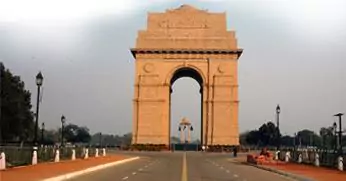
Changes required in Delhi
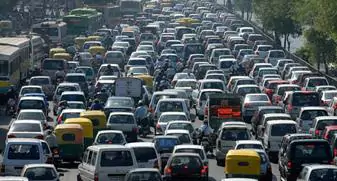





Latest Updates
President Droupadi Murmu paid emotional tribute to Atal Bihari Vajpayee on his 99th birthday.
तहबाजारी वालों की समस्या को लेकर गोयल ने चांदनी चौक में लगाई जनता अदालत
Goel performed ‘havan’ at Hanuman temple in Connaught Place to rescue 41 workers
Goel organised ‘Bijli Adalat’ at Town Hall, Chandni Chowk
People Says
Vijay Goel is a national leader with wider vision and worked on the ground in Delhi.
Shantanu Gupta
No cricket with Pak until terrorism stops, says sports minister Vijay Goel Finally! Kudos for a much needed call!
Amrita Bhinder
Simply will appreciate Vijay Goel’s working style, witnessed his personal attention to west Delhi – Paschim Vihar ppl even at late hours.
Neerja
One must appreciate how Vijay Goel is working so hard and looking out for all sports. One can feel the change. Best wishes!
Saurabh Thapliyal
Vijay on Issues
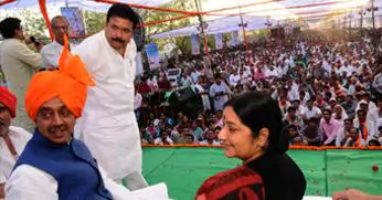
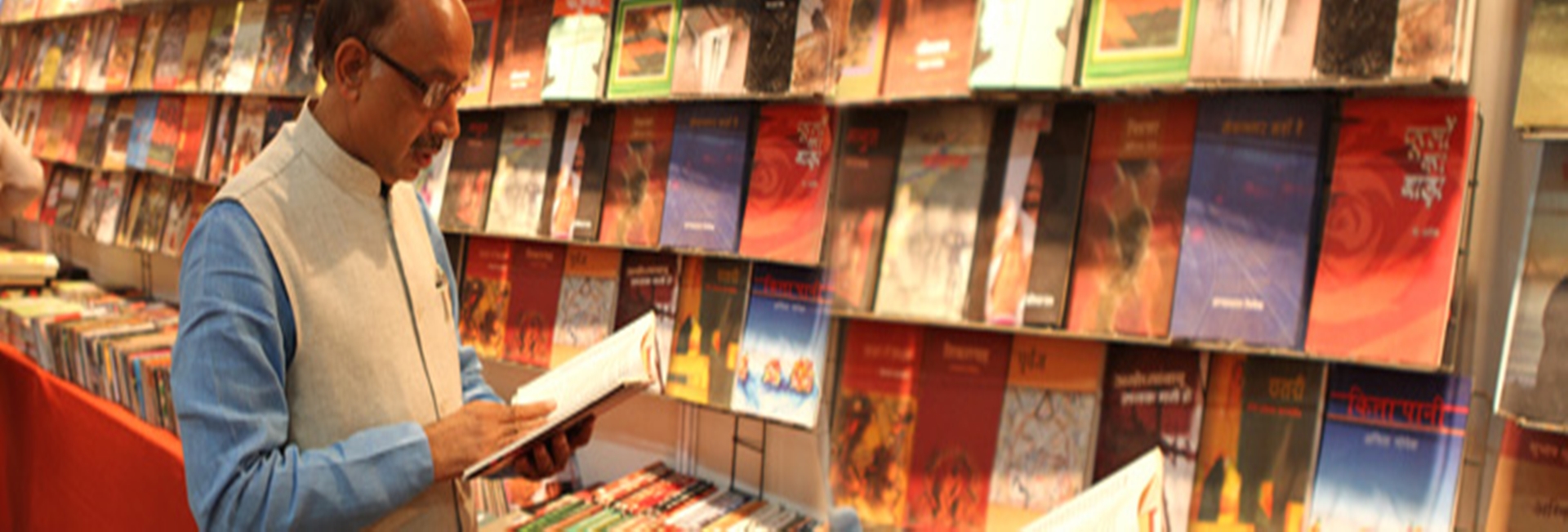




Achievements
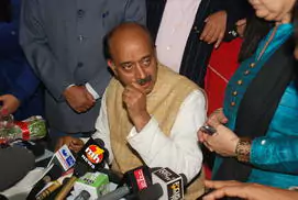

Vijay's Initiatives


